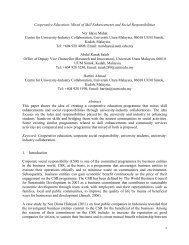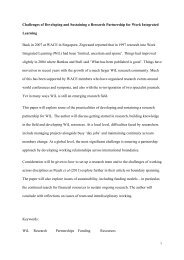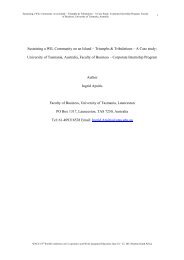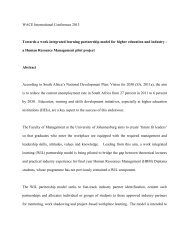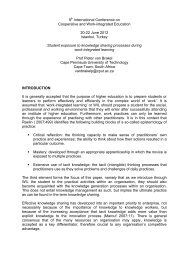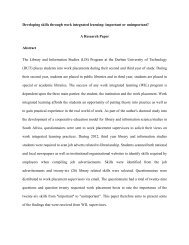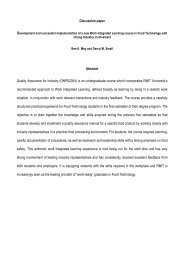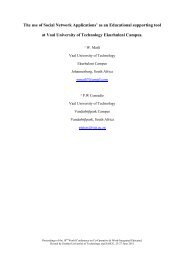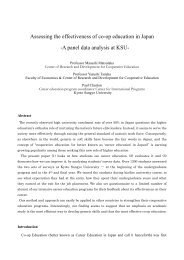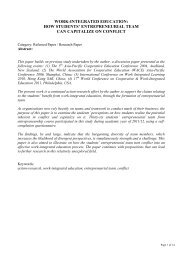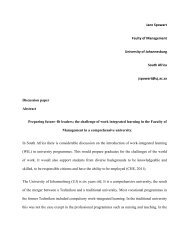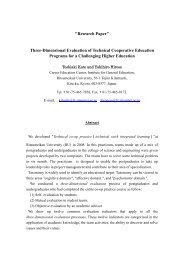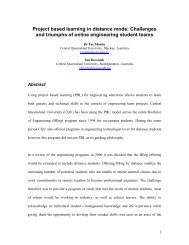Kate Andre, Bev Ewens & Fiona Foxall, Edith Cowan ... - WACE
Kate Andre, Bev Ewens & Fiona Foxall, Edith Cowan ... - WACE
Kate Andre, Bev Ewens & Fiona Foxall, Edith Cowan ... - WACE
- No tags were found...
Create successful ePaper yourself
Turn your PDF publications into a flip-book with our unique Google optimized e-Paper software.
ability to develop and enhance skills is more appropriate in the current work environment andunderpins the interpersonal skills development which result in changes to practice [18, 19, 20,21, 22].Lester [23] argues that there is considerable scope for development of University WILprograms and hence should be viewed as mainstream activity. Traditional WIL curricula (e.g.theoreticum to prepare for practice) have focused on the prescription of learning outcomesdictated by education and/or industry staff based on the professional WIL model, the servicelearning model or the cooperative learning model [24, 25, 26]; however, to meet the needs ofECU postgraduate nursing students, clinical partners and their client groups, an innovativeWIL program of study needed to be conceptualised. Following an extensive literature reviewon WIL programs worldwide, the WIL model created by Middlesex University in the UnitedKingdom, (which loosely reflects the cooperative learning model), informed the initialdevelopment of the ECU WIL model.The ECU WIL curriculum promises to have particular merit in the context of theWestern Australian higher education sector. Firstly, the Western Australian nursing highereducation market is highly competitive, where students are primarily self-funded and timepoor. Therefore, delivery of the ECU WIL Master of Healthcare Studies degree program ismarketable based on its ability to meet the needs of Western Australian postgraduate nursingstudents while affording tangible benefits to industry partners and further strengtheningECU’s relationship and engagement with these organisations. Importantly, where pastpostgraduate nursing curricula were confined and potentially limited professional growth, thepotential of the new ECU WIL program is dynamic and with the promise of longevity andsustainability due to its ability to address and meet the challenges for education of thecontinuously evolving health practitioner. The range of benefits for each of the ECU WILparties are summarised as:



